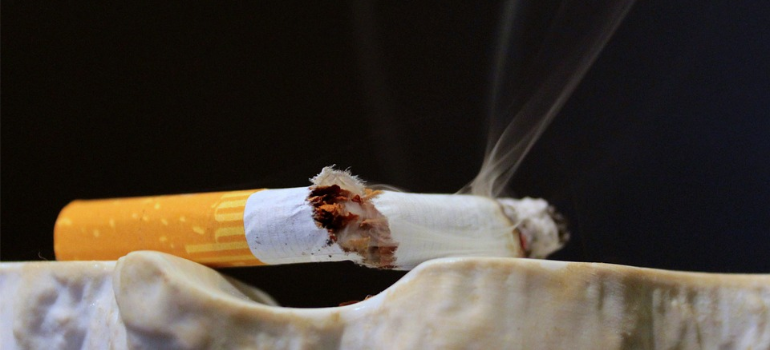There’s no shortage of factors at play when discussing rehab and recovery from addiction. From how long an addiction has lasted and its severity to the exact treatments chosen, every journey to recovery is unique. The one constant factor, however, is self-efficacy; throughout the journey, you are your greatest ally. This is a mantra rehabs in WV embrace, and for good reason. At Harmony Ridge Recovery we do so too because both research and our experience with addiction treatment support this notion. Self-efficacy in addiction recovery can separate success from failure more often than not – and this is what we’re here to discuss today.
What is self-efficacy?
First and foremost, “self-efficacy” may sound a bit vague. It’s not a term that sees much everyday use, after all. Therefore, let us first see how the American Psychological Association (APA) defines it:
“Self-efficacy refers to an individual’s belief in his or her capacity to execute behaviors necessary to produce specific performance attainments.”
In simple words, then, the term largely describes self-confidence. It quantifies just how much the person believes they’re capable of achieving specific goals through behavior. Indeed, APA continues:
“Self-efficacy reflects confidence in the ability to exert control over one’s own motivation, behavior, and social environment. These cognitive self-evaluations influence all manner of human experience, including the goals for which people strive, the amount of energy expended toward goal achievement, and likelihood of attaining particular levels of behavioral performance.”
Needless to say, this is a universally beneficial characteristic. Individuals with more self-efficacy will likely have more confidence overall, experience fewer internal struggles and self-doubt, and so on.

The way it relates to addiction recovery, then, is simple. Rehabilitation is a long and challenging process, which requires conviction and devotion. Throughout the process, individuals will often doubt themselves and the possibility of success – and that’s where self-efficacy becomes an asset. Centers for rehab Huntington WV offers insist on this, and for good reason.
The importance of self-efficacy in addiction recovery
To explain this in-depth, here we can break down all the ways in which the two interact. We’ll keep it concise for your reading convenience, and we will cite relevant sources and past articles you can consult at your leisure.
Self-efficacy and recovery capital
First and foremost, self-efficacy directly informs what professionals call “recovery capital”. If you’d like a refresher or explanation of this term, Robert Granfield and William Cloud defined recovery capital as follows:
“[Recovery capital is] the volume of internal and external assets to initiate and sustain recovery from severe alcohol or other drug problems.”
The key part of this definition lies in “initiate and sustain”. Recovery capital helps to initiate recovery, taking that brave first step forward, and to remain on the path forward.
Recovery capital, then, is broken down into 4 types:
- The personal, which includes financial stability and similar physical assets alongside mental ones like self-efficacy
- The cultural, which includes membership to cultural groups and the bonds therein
- Familial and social, which includes personal and familial close circles
- The communal, which consists of broader communal groups and support one may have access to
We have written on the value of community in managing the recovery process before, which is also highly relevant here. However, in this article what bears stressing is that self-efficacy in addiction recovery largely drives personal recovery capital.

Self-efficacy and recovery outcomes
Indeed, robust recovery capital and self-efficacy significantly affect recovery outcomes. The National Center for Biotechnology Information (NCBI) confirms this with certainty:
“Self-efficacy is involved in abstaining from numerous habitual behaviors, including smoking, using illicit substances, and excessive drinking. Researchers showed that among individuals who attempt to quit smoking, those individuals with higher self-efficacy scores have better outcomes [.]”
This is far from the only notable finding of these studies, as we’ll discuss next. It is notable and logical, however; self-efficacy leads to better recovery outcomes. The more an individual believes in their ability to see the recovery process through, the more likely they are to recover. Indeed, centers for rehab Morgantown WV trusts attest to this conclusion.
Self-efficacy and maintaining abstinence
It naturally follows that self-efficacy also has a positive correlation with maintaining abstinence. Our own experience aside, NCBI continues to confirm this in no uncertain terms:
“In another study involving heavy smokers who recently quit smoking, DiClemente (1981) found that at a 5 month follow-up abstainers had significantly higher self-efficacy than those persons who relapsed. […] One study by Burling, Reilly, Moltzen, and Ziff (1989) found that abstainers had higher self-efficacy scores than persons who relapsed at a follow up assessment; other studies showed that higher self-efficacy scores upon discharge from a treatment center predicted later abstinence (Goldbeck, Myatt, Aitchison, 1997; Greenfield et al., 1998).”
This, too, stands to reason. Those with more self-efficacy are more likely to respond better to relapse triggers and coping strategy education, as our own experience has also found.

Ways to improve your self-efficacy in addiction recovery and beyond
Attaining or improving self-efficacy is easier said than done, however. Especially in such challenging and highly personal contexts as rehab, there’s no single path to success and self-growth.
Therefore, instead of crafting your path forward, here, we’ve compiled the 5 principles we’ve found most successful in this regard. We’ve written about each of them individually before – so here we’ll provide an overview, and link to articles dedicated to each you can consult at your leisure.
#1 Bond with animals
First, you’ve likely heard of therapy animals before. Perhaps a relative or friend has mentioned the psychological benefits of pet ownership. You might’ve even heard how “animals are better than humans” – which, while debatable, also stresses the benefits of animal companionship.
Indeed, bonding with animals helps recovery. There’s ample scientific literature on this phenomenon, whether discussing pets, therapy animals, or farm animals. Animals decrease stress and anxiety, offer a sense of companionship, and increase motivation. For many, they also instill a sense of responsibility, which also boosts self-efficacy and improves mental well-being.
In turn, your treatment providers may offer the option of animal-assisted therapy. If this route interests you, you may also discuss pet ownership in the context of recovery and beyond. It may not be for everyone, but this option does show demonstrable effectiveness.

#2 Allow introspection to cultivate your gratitude
Instead of looking outward, you may prefer to focus inward. Introspection and self-improvement are key to building self-efficacy in addiction recovery and beyond, as the rest of these principles will also show.
For starters, you may wish to explore the concept of gratitude during addiction recovery. This simple change in perspective can prove tremendously beneficial, as it directly builds recovery capital for many people. To illustrate this, consider gratitude for:
- Friends and family; appreciating the support you receive can help mend your relationships and strengthen your close familial and communal support circles
- Your progress; keeping notes of your progress can significantly boost your self-esteem and build your trust in your providers and your journey’s trajectory
- Your resolve; remembering to appreciate your own resolve at any point in the journey is also the best way to build up your personal recovery capital
In combination, these introspection outcomes can have an undeniably positive effect on your mental health and well-being.
#3 Tend to your mental health and wellbeing
On that subject, your overall mental health is just as crucial as self-efficacy specifically. Your well-being will determine your sense of self-worth, your broader confidence, and your mental reserves to see your journey through. This is, in essence, the personal recovery capital we outlined above, and a safe way to boost your self-efficacy in addiction recovery.

There is an array of ways to take care of your mental health during recovery, as we’ve covered before, including:
- Improving your diet, on your own or with a dietician’s help
- Exercising, during or outside of rehab and in group or individual settings
- Practicing mindfulness, alone or guided by your therapists
- Socializing, with both familiar and new people depending on your reserves and needs
- Picking up new hobbies, whether solitary or social ones
As you can see, the possibilities are endless. As long as you remember to love yourself, instead of doubting or punishing yourself, you may find opportunities to thrive during rehab Marietta OH programs and beyond.
#4 Relearn to love yourself
The point above bears re-contextualizing here, because it’s far too easy to forget to love one’s self in rehab. Addiction can have an individual to forget to take care of themselves, from proper nutrition and hygiene to introspection and pleasure. Neglecting one’s self is not uncommon, and remembering to reverse that process can truly benefit the soul.
We’ve written on ways to learn to love yourself before, focusing on the post-rehab phase. The same advice applies throughout the journey, however, and can help build self-efficacy in addiction recovery when it’s most needed.
Consider such small changes in perspective and behavior as:
- Giving up on the idea of perfection; once you stop striving for impossible perfection, you can love yourself despite your human imperfections
- Changing your lifestyle for the better; small lifestyle changes, such as “cheat days” to indulge in small dietary pleasures, can have immense benefits
- Planning for the future; giving yourself a better future to strive for can nudge you toward loving yourself to see your plans through
For extensive information on this subject, we highly encourage you to consult our dedicated article just above.

#5 Practice self-forgiveness
Lastly, as we’ve already outlined, rehab can truly make an individual too harsh on themselves. During the process of taking responsibility for one’s actions, it’s too easy for the pendulum to swing too far. A forgivable misstep toward relapse can cause a downward spiral into self-judgment and cause rehab to fail.
To avoid this, it is vital to explore ways to practice self-forgiveness during rehab. Many will come naturally during the recovery process, and your treatment providers will guide you through others. Others require some conscious effort to identify or take in, however, such as:
- Recognizing the grip of addiction; while not absolving you of responsibility, recognizing how powerfully addiction can grip a person will help you avoid needless guilt
- Making amends; mending relationships with those you have wronged will both open you up to accepting forgiveness and build your recovery capital
- Accepting forgiveness; letting go of your guilt and allowing yourself to accept the forgiveness of others may be all you need to become able to forgive yourself
These and similar methods may prove invaluable toward building self-efficacy in addiction recovery. As long as you keep a conscious eye on those available to you, you can make the best of them and ensure a successful recovery.
What should I look for when choosing treatment providers?
Finally, while you’re indeed your greatest ally during rehab, your treatment providers bear much responsibility too. Proper guidance and companionship throughout the journey can make all the difference, and not all providers are up to the task.

So, whether you’re exploring options for rehab New Lexington OH offers or looking farther, what should you look for? Here we can consolidate the most crucial qualities treatment providers should have, and you can explore our other content for additional insights into this significant choice.
#1 An array of addiction recovery programs
Addiction comes in many different forms; different durations, severity, and other factors. In turn, this means there can’t just be one path to recovery and abstinence. Treatment providers should offer a range of addiction recovery programs, from detox to outpatient programs and beyond.
For inpatient programs, you may need to explore residential treatment facilities in WV. For long-term aftercare, you may need to seek the best sober living homes. In all cases, remember to examine just how your providers can cater to your unique needs.
#2 Programs catering to recovery from different substances
Similarly, addiction to different substances comes with different journeys and different demands of self-efficacy in addiction recovery. Stimulants rehab won’t be identical to benzo rehab, for instance; these substances have drastically different withdrawal symptoms and cravings severity.
Thankfully, West Virginia heroin rehab options abound – but the same may not hold true for all substances. To best address this, make sure your candidates offer different treatment options for different substances.

#3 Programs uniquely suited to occupation, sex, and other characteristics
Personalization doesn’t end with the above; addiction differs among different groups as well. Rehab for pregnant women differs substantially from rehab for veterans, for instance. Many characteristics of the individual, from their sex to their occupation and more, will create a unique context for rehab.
Therefore, you should also ensure your treatment providers can cater to these unique differences. See if they offer sex-specific care, therapy focused on specific occupational backgrounds, and other such specializations relevant to your case.
#4 Robust aftercare
Beyond recovery itself, aftercare may be the single most important phase of rehab. Your aftercare program will be where you cement your abstinence, prevent relapse, and rebuild your life.
Because of this, it’s vital that your candidates offer extensive and thorough aftercare programs. From alumni programs to sober living homes and beyond, ensure they’ll maintain a support network around you post-rehab.
#5 Wide insurance coverage
Finally, it’s no secret that rehab services can come with considerable costs. Unfortunately, they can often prevent individuals from seeking the help they need or cause treatment interruptions. What’s even more unfortunate is that insurance coverage can mitigate this significantly – but many providers are unclear in this regard.
Therefore, to ensure both peace of mind and a successful recovery, remember to check your candidates’ insurance coverage. With thorough communication and transparency on your costs, you can embark on your recovery journey without such worries.

Self-efficacy in addiction recovery; you are your greatest ally
In conclusion, self-efficacy is an invaluable asset during rehab. It has clear and demonstrable benefits on rehab outcomes and continued abstinence and can enhance your well-being even beyond recovery. It starts with remembering to forgive and love yourself and ends with renewing your confidence in yourself and your abilities.
While you are indeed your greatest ally, your choice of treatment providers is also crucial to ensuring success. Your providers should guide you through the process and lead you on the path to self-efficacy and self-growth. This is not a journey to take alone – even if it does start from within yourself.



